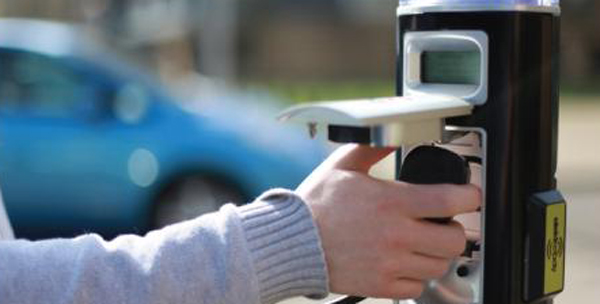Free charging points to support EV research

Free Electric Vehicle (EV) charging points are available in London for residents and businesses participating in trials to understand the impact of EV use on the electricity network.
The Low Carbon London trials are designed to prepare Britain’s power infrastructure for greater use by electric vehicles and enable the vehicles to be recharged conveniently in London, both at home and on-street.
The free charging infrastructure will be funded by UK Power Networks, via the Low Carbon Networks Fund, and Transport for London, from funds secured via The Office for Low Emission Vehicles (OLEV) Plugged in Places scheme. Monitoring the charge points will help engineers to design the electricity networks needed to support electric vehicle expansion.
Engineers will study the charging habits of EV drivers to plan for projected peaks on the electricity network. Each charger will securely transmit the time and duration of each recharge to the research team, where the data will be scaled up to illustrate the potential impact on the electricity network if the majority of drivers on the road were using EVs.
Liam O’Sullivan, Low Carbon London programme director, said: “Until now, grant funding in London has largely gone to support publicly-available charge points on the street or in public car parks, for example. With speculation that most EV charging will be done within owners’ homes or workplaces this is an opportunity to help reduce the owners’ costs and tackle range anxiety.
“Low Carbon London has brought together funding from Government and the private sector to incentivise take-up of EVs so that ultimately we can study the drivers’ charging habits and prepare for the future. We are proud to be working in partnership with TfL and our project partners to examine how our electricity networks will support uninhibited car use, powered by electricity.”
Nick Fairholme, director responsible for Source London at TfL, said: “We are pleased to partner UK Power Networks in these trials. This research will enable us all to not just discover the future impact that charging cars at home and at work could have on the electricity network but also to encourage the uptake of more electric vehicles in the capital. Source London continues to roll out its network of publicly accessible charge points which will support home charging and give drivers extra reassurance when out and about helping the Mayor in his aim to deliver cleaner air for the capital.”
Erik Fairbairn is chief executive of POD Point, one of the programmes’ supplier partners, which is helping to sponsor the cost of home and workplace charging points.
He said: “Most cars spend the most of their lives parked either at home or at the workplace – and it is this ‘dormant’ time that is used to charge electric vehicles. What we need to ensure is that car charging is staggered to prevent a surge of demand at peak times, when people arrive at work, or when they return home. Smart charging solutions such as POD Point’s home charge points will not only manage charging times, but also ensure the car is charged when electricity is cheapest, greenest, or according to the availability of locally generated electricity.”
With some 22 per cent of carbon emissions coming from transport in London, electric vehicles are seen as a key part of the carbon reduction jigsaw and electricity networks must cater for them. UK Power Networks is exploring the future impact which mass use of EVs will have on the electricity networks it owns and operates across a quarter of Britain. Electricity networks need to adapt to enable, and not impede, the expansion of electric cars and other low carbon technologies and the Low Carbon London research exploring the best way to do this.
The charging points offer is available to EV users in UK Power Networks’ London footprint on a first-come-first-served basis. The home charging points will be provided by UK Power Networks from charger manufacturers and they will be connected to the electricity network by UK Power Networks via home owner and businesses electrical systems.
Electric vehicle drivers who join the trial will receive a free 16-amp charging unit, which typically takes about six hours to charge a family car. The drivers will be kept up to date on the findings of the research and will have an online account where they can view their energy use and charging details. They can keep the charger once the research is complete in 2014.
To take part in the free charging point offer, or find out more, ring 0800 859 5378, write to lowcarbonlondon@ukpowernetworks.co.uk or visit the website www.lowcarbonlondon.info. The team is also keen to hear from any EV drivers interested in taking part in the trials.
Led by UK Power Networks, Low Carbon London is funded mainly by customers through Ofgem’s Low Carbon Networks Fund to deliver findings for the whole electricity distribution industry.






Comments
There are no comments yet for this item
Join the discussion